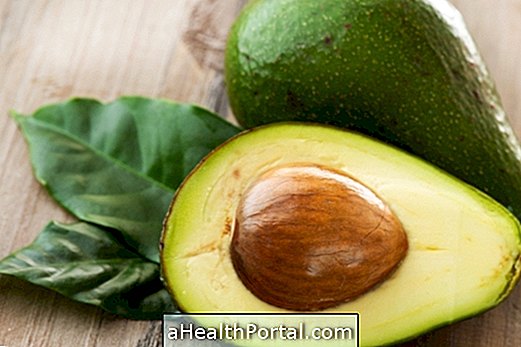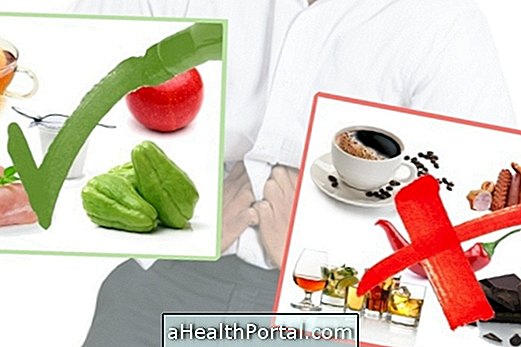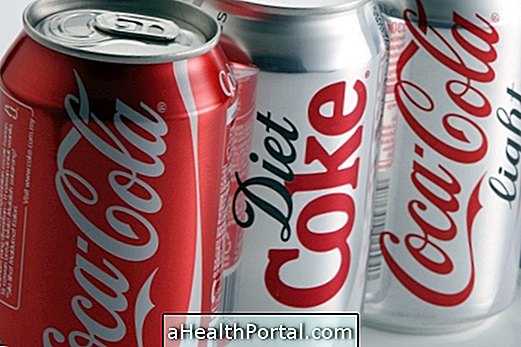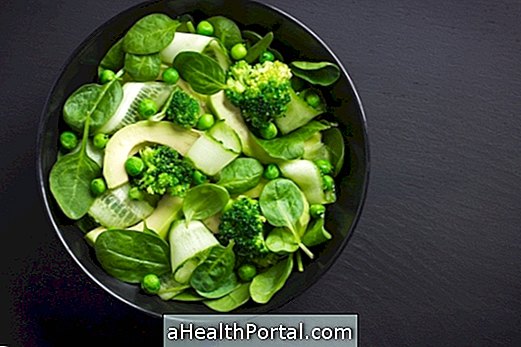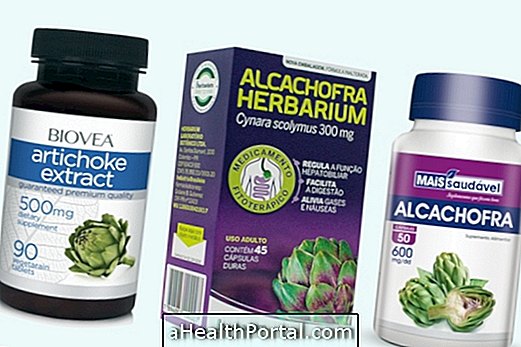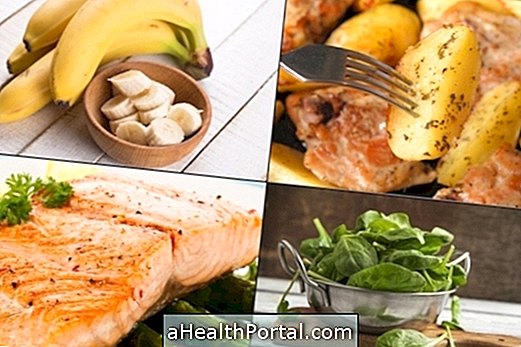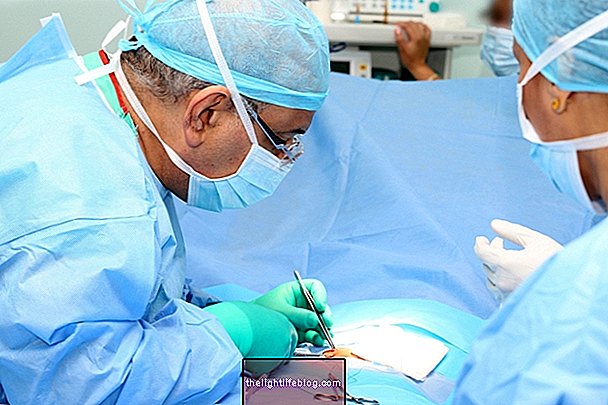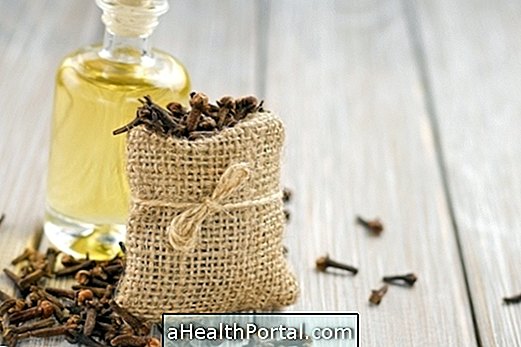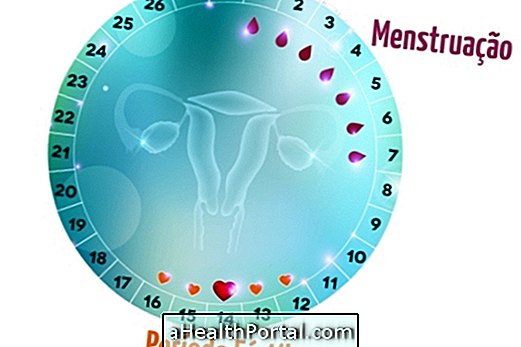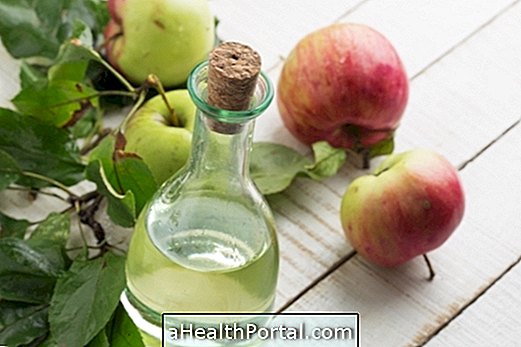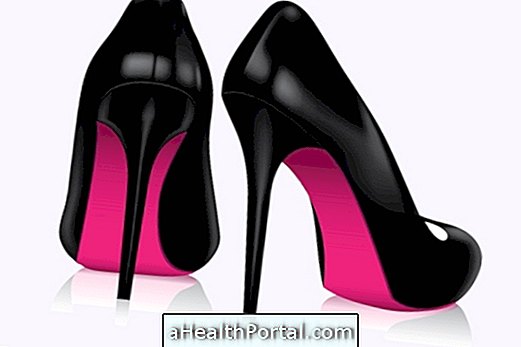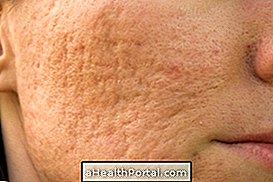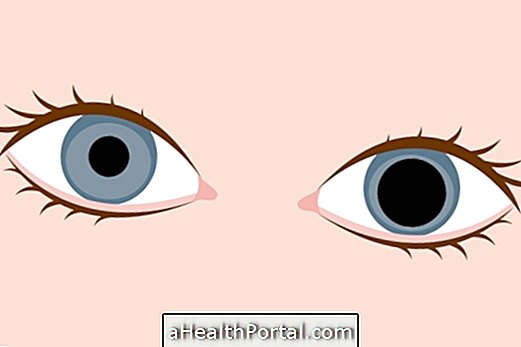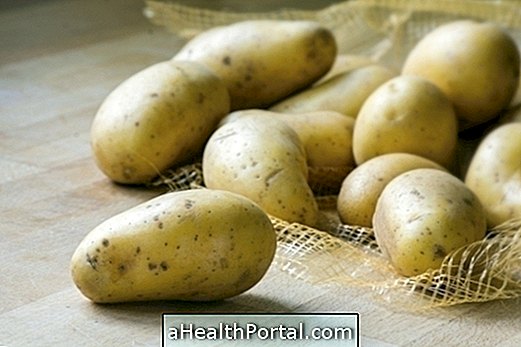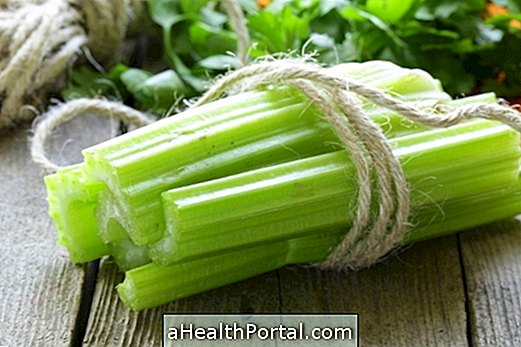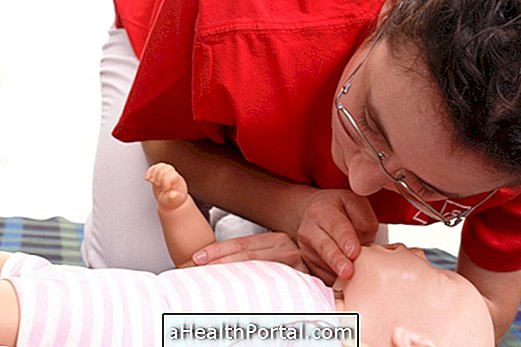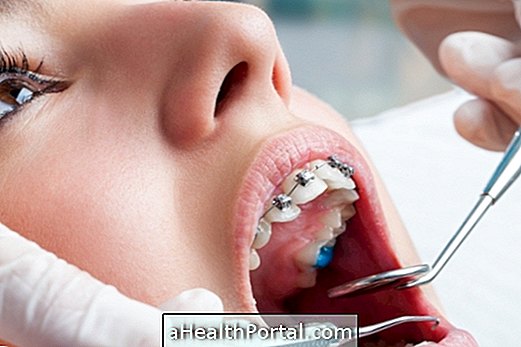Biotin, also called vitamin H, B7 or B8, can be found primarily in animal organs such as liver and kidneys, and in foods such as egg yolks, whole grains, and nuts.
This vitamin plays important roles in the body such as preventing hair loss, maintaining skin, blood and nervous system health, as well as promoting the absorption of the other B vitamins in the intestine. See all their properties here.

Amount of biotin in food
The recommended daily allowance of biotin for healthy adults is 30 μg per day, which can be ingested through the biotin-rich foods shown in the table below.
| Food (100 g) | Amount of Biotin | Energy |
| Peanut | 101.4 μg | 577 calories |
| Hazelnut | 75 μg | 633 calories |
| Wheat bran | 44.4 μg | 310 calories |
| Almond | 43.6 μg | 640 calories |
| Oat bran | 35 μg | 246 calories |
| Chopped walnut | 18.3 μg | 705 calories |
| Boiled egg | 16.5 μg | 157.5 calories |
| Cashew nut | 13.7 μg | 556 calories |
| Cooked mushrooms | 8.5 μg | 18 calories |
In addition to being present in food, this vitamin can also be produced by the bacteria of the intestinal flora, which helps maintain their proper levels in the body.
Symptoms of lack of biotin
Symptoms of a lack of biotin usually include hair loss, peeling and dryness of the skin, sores in the corners of the mouth, swelling and pain in the tongue, dry eyes, loss of appetite, tiredness, and insomnia.
However, the lack of this vitamin is rare and usually only occurs in hospitalized people who do not feed properly, in patients with diabetes or who undergo hemodialysis, and in pregnant women.
Learn How to Use Biotin for Hair to Grow Faster.
